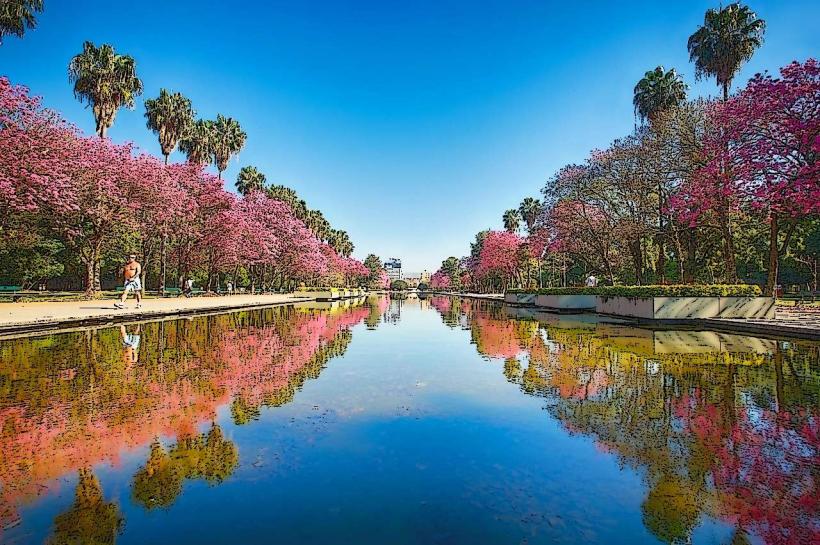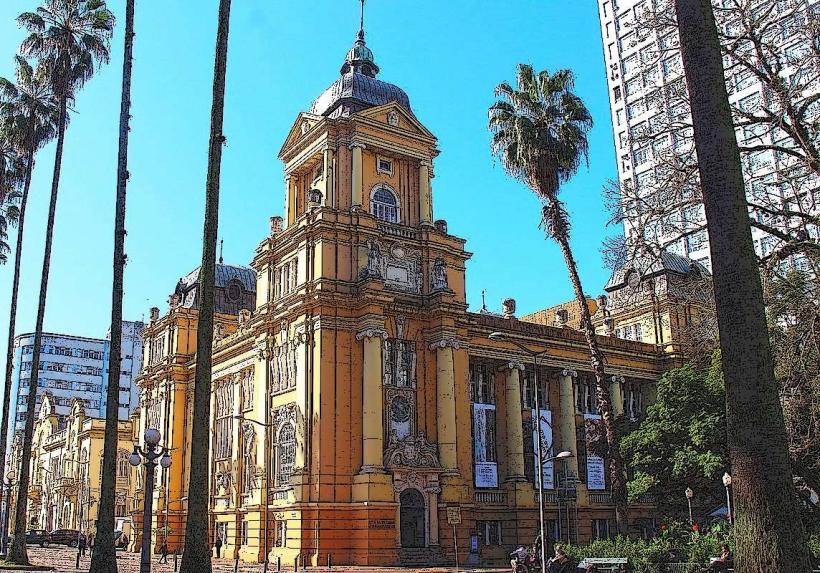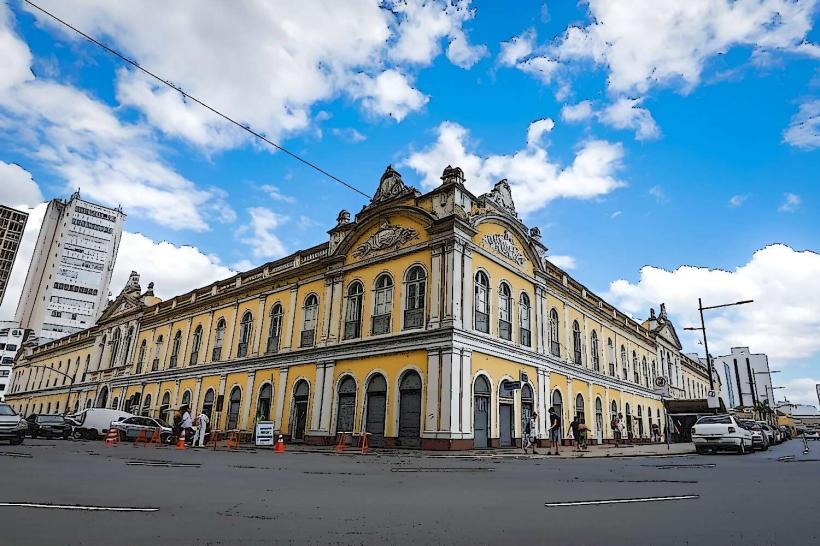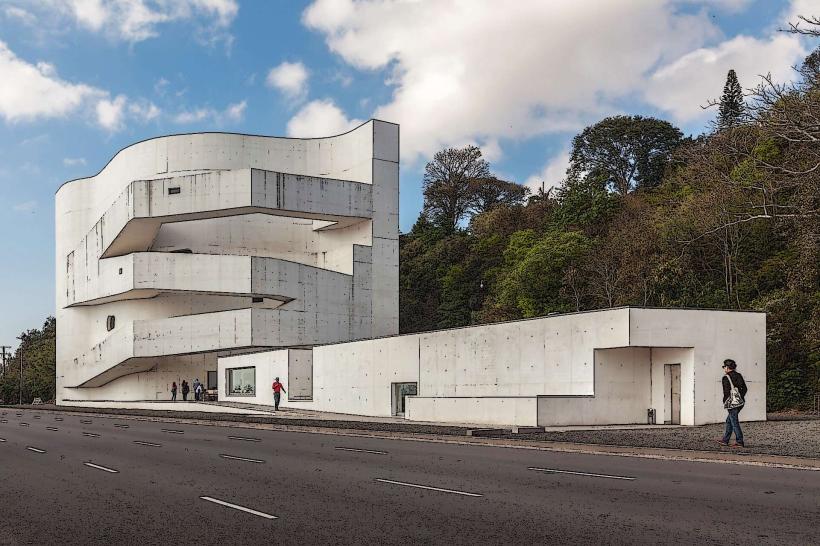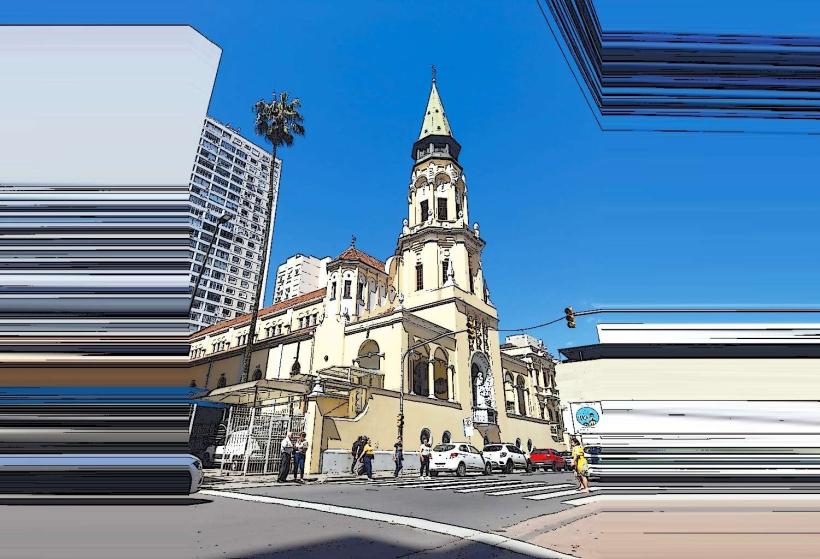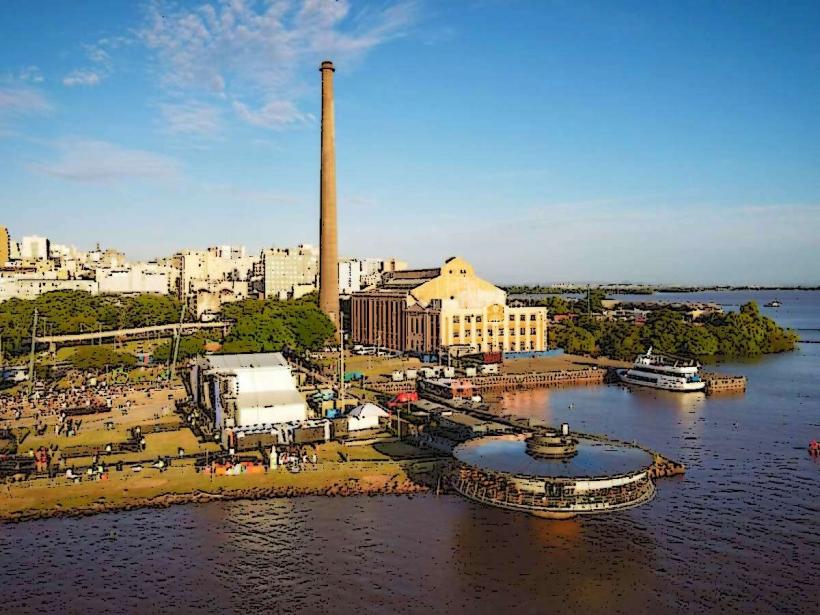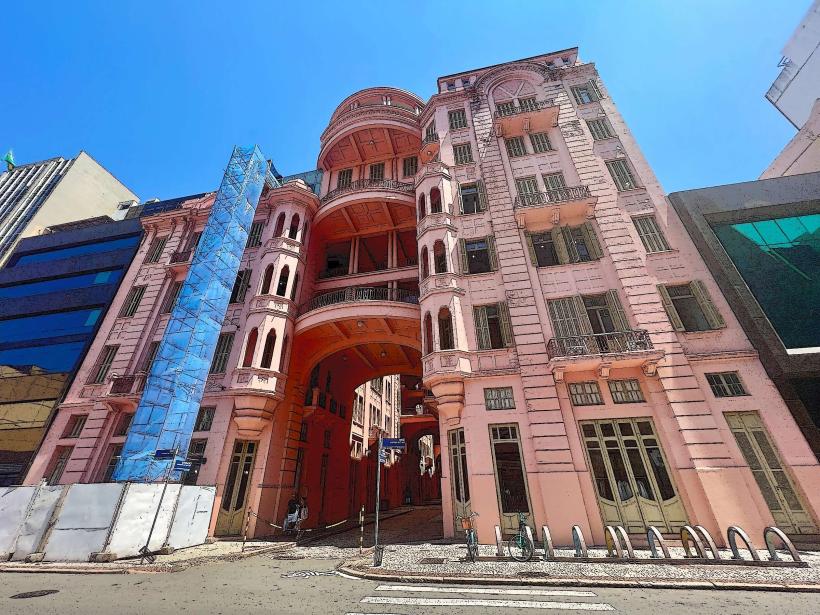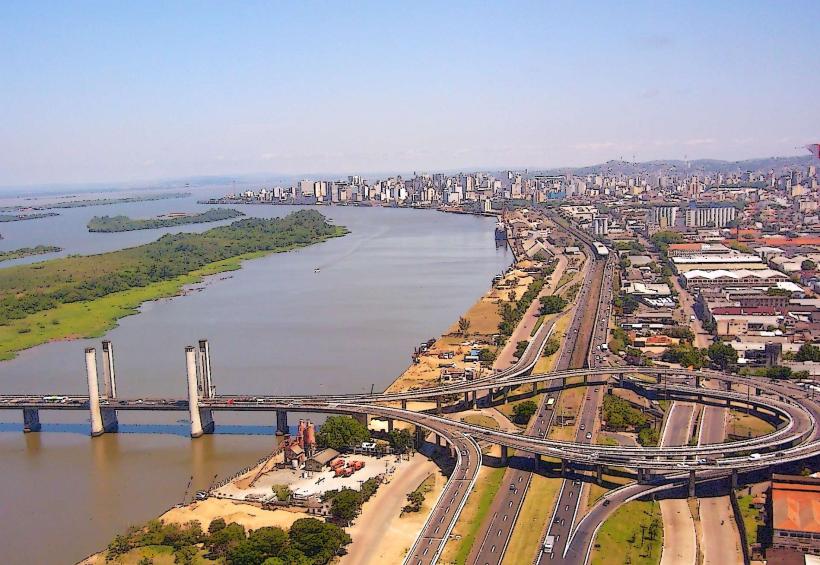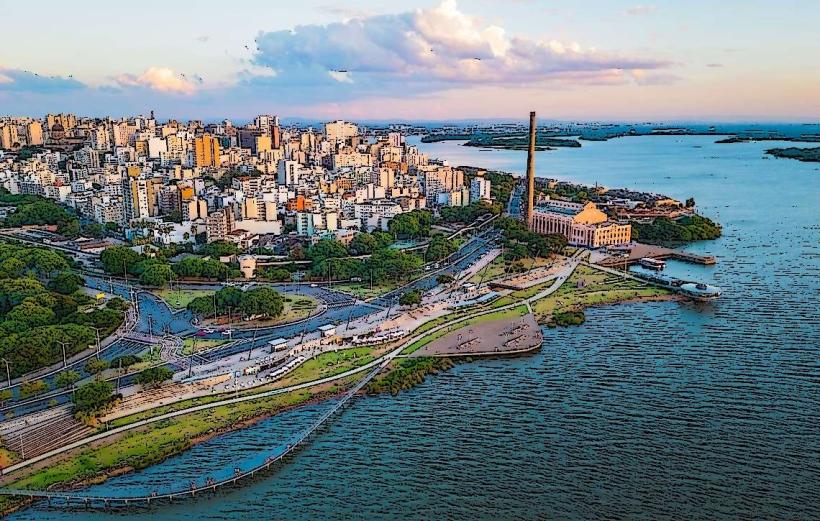Information
City: Porto AlegreCountry: Brazil
Continent: South America
Porto Alegre, Brazil, South America
Porto Alegre serves as the "Gaucho Capital" and the primary economic and cultural gateway to Southern Brazil. It is situated on the eastern bank of the Guaíba Lake, where five rivers converge to form the massive freshwater Lagoon of the Ducks (Lagoa dos Patos).
Historical Timeline
Founded in 1772 by Portuguese settlers from the Azores, the city initially served as a strategic military outpost. In the late 19th and early 20th centuries, it received massive waves of German, Italian, and Polish immigrants, fundamentally shaping its European-influenced urban character. A defining modern event occurred in May 2024, when the city faced its most severe flood in history, with the Guaíba reaching a record $5.35m$. This catastrophic event triggered a massive urban reconstruction effort focused on flood resilience and the redesign of the city's historic Cais Mauá waterfront, which continues through 2026.
Demographics & Population
The metropolitan population is approximately 4.3 million. Porto Alegre has a strong European heritage (predominantly Portuguese, Italian, and German) blended with a significant Afro-Brazilian community. The residents, known as Porto-alegrenses or Gaúchos, are noted for a distinct regional identity characterized by a strong attachment to rural traditions and a fast-paced urban lifestyle. The median age is approximately 35.8 years.
Urban Layout & Key Districts
Centro Histórico: The administrative core, concentrated with colonial and neoclassical architecture.
Moinhos de Vento: The most affluent district, featuring high-end retail, upscale dining, and the "Parcão" (Moinhos de Vento Park).
Cidade Baixa: The bohemian and student hub, characterized by intensive nightlife, bars, and cultural spaces.
Orla do Guaíba: The recently revitalized 3.8 km waterfront, now the city's primary leisure and sunset-watching zone.
Três Figueiras / Bela Vista: High-end residential neighborhoods with significant modern high-rise development.
Top City Landmarks
Public Market (Mercado Público): A neoclassical hub of Gaucho culture and regional gastronomy.
Theatro São Pedro: The city's oldest and most prestigious theater.
Mario Quintana House of Culture: A pink-walled former hotel transformed into a multidisciplinary arts center.
Iberê Camargo Foundation: A minimalist white concrete museum designed by Álvaro Siza, housing contemporary art.
Farroupilha Park (Redenção): The city's most beloved green space, famous for its Sunday craft market (Brique da Redenção).
Transportation Network
Trensurb: A surface metro line connecting the city center to the northern suburbs and the International Airport (POA).
Bus & Lotação: A comprehensive bus network supplemented by Lotações (red-and-white minibuses) that offer faster, seated-only transit on specific routes.
Ride-sharing: Uber and 99 are the dominant and safest modes of transport.
Traffic: Congestion is significant on the Osvaldo Aranha and Ipiranga avenues during peak hours.
Safety & "Red Zones"
Porto Alegre has experienced a rise in urban crime over the last decade.
Red Zones: Avoid the "Vilas" (informal settlements) on the city’s periphery. The Historic Center and the areas surrounding the Farroupilha Park can be unsafe after dark.
Precautions: Street robberies targeting cell phones are common. Do not walk alone in the Centro or Cidade Baixa late at night. Use ride-sharing services for point-to-point transit.
Digital & Financial Infrastructure
Average internet speed is 95 Mbps. 5G is available across the central and southern corridors. The Pix system is used for nearly all transactions. Card acceptance is universal. ATMs are concentrated in the Moinhos Shopping and Praia de Belas malls.
Climate & Air Quality
Humid subtropical climate. Temperatures are the most variable in Brazil, ranging from 5°C in winter (June–August), with occasional frosts, to 35°C+ in summer. Air quality is generally high due to lake breezes. The "Minuano" (a cold south-southwest wind) is a characteristic winter phenomenon.
Culture & Social Norms
The local culture revolves around Churrasco (barbecue) and Chimarrão (a hot mate tea drunk through a silver straw). Refusing an offered mate is not necessarily rude, but sharing the gourd is a deep social bond. Tipping is typically a 10% service charge. Handshakes or two cheek kisses are the standard greeting.
Accommodation Zones
Moinhos de Vento: Recommended for safety, high-end hotels, and proximity to dining.
Cidade Baixa: Recommended for a younger audience seeking nightlife and cultural proximity.
Local Cost Index
1 Espresso: 8.50 BRL ($1.55)
1 Standard Lunch (Buffet Livre): 35.00 BRL ($6.35)
1 Taxi/Uber (5km): 22.00 BRL ($4.00)
Nearby Day Trips
Gramado & Canela: European-style mountain towns in the Serra Gaúcha (120 km / 2 hours).
Vale dos Vinhedos (Bento Gonçalves): Brazil's premier wine-producing region (125 km / 2 hours).
Itaimbezinho Canyon: One of the largest canyons in Brazil, located in Cambará do Sul (190 km / 3 hours).
Facts & Legends
A prominent local legend involves the "Obscure Maria," a ghost said to haunt the Mario Quintana House of Culture. A verified historical oddity is that Porto Alegre was the birthplace of the World Social Forum, established in 2001 as an alternative to the World Economic Forum. Another fact: the city's Rua Gonçalo de Carvalho is internationally recognized as one of the most beautiful streets in the world, featuring a "tunnel" of over 100 Tipuana trees.

